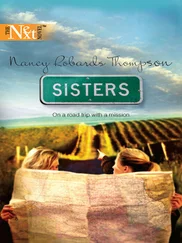I slipped the pamphlet inside the padded envelope and reached for the phone. If the Buntings were at home, I’d head for the vicarage.

Bundled bulkily in a brown duffel coat, Jasper Taxman raised his crowbar to greet me as the Mini splashed across the slick cobbles. Peggy Kitchen had evidently ordered Mr. Taxman to dismantle the platform he’d built for the rally that never was, and Mr. Taxman had, as usual, obeyed. The rain streamed from his coat as he pried another board loose and tossed it aside.
Lilian welcomed me with a batch of lemon bars still warm from the oven and a pot of herbal tea to chase away the chill. I welcomed the opportunity to conduct a silent taste test. Her lemon bars were tangy, I decided, but mine were sweeter. I recalled the heap of sugar Dick Peacock had shoveled into his medicinal tea and concluded that if he judged the final contest, I was a shoe-in for the blue ribbon.
It was surprisingly easy to clear Annie of the burglary without mentioning Petronius’s grave. I told Lilian that Annie and Francesca disagreed on many things, but both shared a strong aversion to archaeology.
“It’s a superstition they picked up from their father,” I said, knowing Francesca would forgive me. “If Annie had taken the pamphlet, she wouldn’t have hidden it. She’d have brought it straight to Adrian, just to get rid of him.”
We heard the front door open and close, then the rustle of an umbrella being shaken. A few moments later the vicar came into the library, carrying his wet shoes in one hand. He placed the shoes on the hearth to dry, then settled into his armchair to hold his stockinged feet to the fire and sip a cup of tea.
“I’ve just returned from the Emporium,” he announced. “There’s something wrong with Mrs. Kitchen. I’ve never seen her looking so subdued.”
“Maybe she feels let down,” I offered. “Her whole campaign to oust Adrian from the schoolhouse was a waste of time.”
“A storm in a teacup,” the vicar agreed. “Thank heavens she’ll soon be gone. I must say that I feel sorry for the residents of Little Stubbing. They don’t realize that their peaceful days are numbered.”
“Before I forget . . .” I took Holding Fast from the padded envelope and handed it to Lilian. “This is the pamphlet I mentioned on the phone, the one Dr. Finderman sent on from the collector in Labrador.”
“How interesting,” said the vicar, leaning forward in his chair. “It’s remarkably similar to the pamphlet that was stolen, isn’t it, my dear?” The vicar paused before repeating, a bit more loudly, “My dear?”
“Yes, Teddy,” said Lilian distractedly. “Remarkably similar.” She crossed from the couch to her worktable and began searching through her papers. I noted with amusement that she’d added the collected works of Peggy Kitchen—the harvest-gold flyers trumpeting the festival, the petition, and the rally—to the rest of the historical documents.
The vicar rose from his armchair and went to stand behind his wife, who was examining the pamphlet with a magnifying glass. “What is it, Lilian?”
“It may be nothing,” she said. “But I would value Lori’s professional opinion.”
I crossed quickly to the table as Lilian pushed aside everything but Peggy’s flyers and Holding Fast . She switched on her work lamp, then stood back.
“Am I imagining things?” she asked. “Or am I seeing yet another striking resemblance?”
I opened Holding Fast to the title page and compared it to the flyers. “ They’re all printed in Caslon—that’s a style of type introduced in England in the early eighteenth century. It’s been popular ever since. But I don’t see . . .” I hesitated, then reached for the magnifying glass.
I bent low for a closer examination. “It’s not just the same typeface,” I said. “It’s the same font—the same set of type. Look . . .” I pointed from the H in Harvest to the H in Holding. “The crossbar’s got the same hairline fracture. The F s are identical as well. See?” I tapped the words Festival and Fast. “Same faded serif, where the type’s worn down. And there’s a matching nick in two of the lowercase T s.”
I passed the magnifying glass to the vicar. Either Lilian had sniffed out the biggest coincidence in the history of printing, or Peggy Kitchen and Cornelius Gladwell had used the same font for their printing projects. Jasper Taxman had mentioned that Peggy had no photocopier, but it hadn’t occurred to me to ask if she used a Victorian printing press instead.
“What happened to Cornelius Gladwell’s personal possessions?” I asked, turning to Lilian.
“I believe they were auctioned off.” She rifled through a file box. “Yes, here it is,” she said, pulling out an index card covered with handwritten notes. “They were auctioned off by Harmer’s Auction House in 1901.”
“Harmer?” said the vicar, laying aside the magnifying glass. “Isn’t that the name of the fellow who used to own the Emporium?”
“Yes,” said Lilian. “His father owned the shop before him and conducted auctions as a sideline.”
“He must have kept the Gladwell printing press for himself,” said the vicar. “It’s probably in Mrs. Kitchen’s back room right now.” He chuckled. “Just imagine, keeping the old thing running all this time . . .”
Lilian returned the card to the file box and glanced at her wristwatch. “Why don’t we pay a visit to Mrs. Kitchen’s back room, Teddy? There’s plenty of time before evensong, and I’d like to find out if Mr. Harmer’s father bought anything else belonging to Mr. Gladwell.”
“Like his papers?” I asked, following her train of thought. “Do you really think that the other nine copies of Disappointments in Delving might be in Peggy’s back room?”
“It would explain why Dr. Finderman hasn’t been able to locate them,” Lilian said reasonably. She switched off the work lamp and headed for the hallway. “Apart from that, I have a small score to settle with Dr. Culver. He’s been very polite about it, but I’m quite certain that he thinks Teddy and I invented the Gladwell pamphlet in order to pacify Mrs. Kitchen. It would please me greatly to prove him wrong.”
Moments later, we were bundled in raincoats and heading down Saint George’s Lane for the Emporium. I would never have admitted it to the Buntings, but I was thrilled at the prospect of getting a peek inside Peggy’s back room.
We’d gone no more than ten yards from the vicarage when we ran into Miranda Morrow hastening up the lane toward Briar Cottage. Mr. Wetherhead limped along behind her, planting his cane with care on the rain-slicked road and glancing over his shoulder. When he saw me, he turned scarlet and quickly lowered his gaze.
“Well met,” said Miranda. Raindrops spangled her ankle-length black cloak and slithered down Mr. Wetherhead’s aluminum cane. “George and I were just about to ring you.”
“Why?” I said.
Miranda’s eyes danced as she replied, “We’ve had a daylight encounter with Brother Florin.”
“You’ve seen him again?” I exclaimed.
“I’m sorry to say that we have.” Mr. Wetherhead seemed very much annoyed. “If I’d known about the burglary, I might not have made such a stupid mistake. But it seems I let my imagination run away with me.”
“Brother Florin?” said the vicar. “Who is Brother Florin?”
Miranda cocked a beckoning finger. “Come along, Mr. Bunting, and I’ll show you.” Without another word she led us to the edge of the square and pointed toward Kitchen’s Emporium.
Читать дальше









